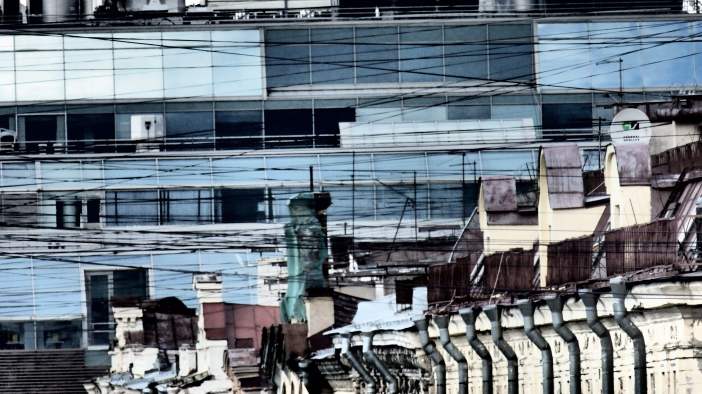
The town’s coroner and mortician, Dr. Ivan Malinin, a Russian immigrant who barely spoke English, performed the autopsy on Williams at the Tyree Funeral House. Malinin found hemorrhages in the heart and neck and pronounced the cause of death as “insufficiency of [the] right ventricle of [the] heart.” Malinin also found that, apparently unrelated to his death, Williams had also been severely kicked in the groin during a fight in a Montgomery bar a few days earlier in which he had also injured his left arm, which had been subsequently bandaged. That evening, when the announcer at Canton announced Williams’s death to the gathered crowd, they started laughing, thinking that it was just another excuse. After Hawkshaw Hawkins and other performers started singing “I Saw the Light” as a tribute to Williams, the crowd, now realizing that he was indeed dead, followed them.
Source: “Death of Hank Williams,” Wikipedia
Hyvästi Suomi!
This can be translated as “Goodbye, Finland,” or it can be translated as “Adieu, Finland.” The correct translation will depend on our neighbors.
Source: “News Roundup” email newsletter (Delovoi Peterburg), 24 November 2023. Translated by the Russian Reader
Finland has temporarily closed all but one of its eight passenger crossings to Russia in response to an unusually high inflow of migrants for which the Nordic country accuses Moscow.More than 700 migrants from nations such as Yemen, Afghanistan, Kenya, Morocco, Pakistan, Somalia and Syria, have in the past couple of weeks entered Finland via Russia. Helsinki says Russia is funneling migrants to the border, a charge the Kremlin has denied.
Having last week closed four border stations, Finland overnight closed all remaining passenger crossings except its northernmost one, Raja-Jooseppi located high north in the Arctic region, for a month.
Raja-Jooseppi opened its gates for traffic this morning and will continue to accept asylum applications during its four daily opening hours, the Finnish Border Guard said.
No migrants arrived overnight outside opening hours, it added.
The Border Guard is stepping up patrolling along the length of its 833-mile frontier with Russia.
It will get additional resources for the task from the European Union’s border agency Frontex, which said on Thursday it would deploy 50 border guard officers and other staff to Finland along with equipment such as patrol cars to bolster control activities.
Source: “Finland closes passenger border crossings with Russia,” NBC News, 24 November 2023
What are the benefits for Russia?
HS: Russia wants to create an image of a hostile West that is of benefit to the Russian leadership. Finland has not fit this image in the past, but now they are trying to build it. Relations between Finland and Russia are at a turning point. The Russians have realised that they do not know Finland after all. They want to see who Finland cooperates with and at the same time try to stir up discord within Finnish society. Building a new relationship will be a long-term process.
JS: Russia can create a fortress mindset due to a perceived ‘threat’ from the West. Finland’s eastern border is becoming a useful confrontational narrative for the Kremlin. When the same narrative is repeated, a kind of protection mechanism kicks in and even sceptics will start to believe it.
Claude Rains in Casablanca
He was the French Police Inspector
A functionary through and through
A small man
Remember at the end out on the airstrip
He could have tried to stop them
Ingrid Bergman and her friend from the French Resistance
But he pretended not to see
It was a small act of defiance
As the storm broke in the distance
He was on their side after all.
Claude Rains gave the order to collect the usual suspects
And the camera came in close up on his face
He watched as the plane left the airstrip
Like hope leaves a dying man
But he hung on to the choice he’d made
Claude Rains
Claude Rains
Claude Rains
Claude Rains
I saw a new film the other day
And it was set at the start of a nuclear war
The actors weren’t as good as Claude Rains
But then there was nothing that they could do
All of their small acts could count for nothing
As the storm broke in the distance
Not much to make a film about
Source: “Claude Rains,” The Front Lawn: Lyrics
Civic Council named “undesirable organization” in the Russian Federation
The Prosecutor General’s Office added us to this list on November 3, exactly one year after we announced the creation of our Mobilization Center. We have openly stated that we are working to ensure that the Russian Federation in its current form, with its current government and all that this government calls the state, ceases to exist.
Today it is the Russian state that is criminal, and armed struggle against it is legitimate and necessary. So the Prosecutor’s Office and the Justice Ministry are formally correct: we are their enemies.
In fact, our status as an undesirable organization has not changed anything. Supporting the Civic Council within Russia was also a criminal offense before we were give this status, just like all other independent political and civic activities. The Russian authorities hand down approximately the same prison sentences for making [anti-war] comments on social media and engaging in armed resistance. So, we propose fighting effectively, rather than commenting in vain.
We have to resist intelligently, so we suggest that our supporters inside Russia observe the rules of information security and be vigilant.
We do not accept donations payable to Russian bank cards and do not have accounts in Russian banks.
We are not urging you to attend protest rallies right now. The time to go to the public squares will come later.
We invite those who are ready to take up arms to fight, fully aware of the consequences.
For those who do not want to stay on the sidelines but cannot fight for various reasons, there are other ways to support our cause:
- donating money, including anonymously through crypto wallets (including Monero)
- providing information to our OSINT service
- disseminating information about the opportunity to volunteer
To volunteer for the Siberian Battalion, fill out this form.
Anyone who wants to make a donation should go here. All options are a help to us.
Anyone who wants to help with information or other work inside the Russian Federation should write to us at civic_council@proton.me.
Sincerely yours,
Civic Council, an undesirable organization in the Russian Federation
P.S. We suggesting giving us the special status of “an organization readying the overthrow of the Putin regime.”
Source: Civic Council (Facebook), 23 November 2023. Translated by the Russian Reader
Foreign luxury brands are closing their flagship stores on Nevsky Prospect, but they could be replaced by Russian fashion retailers, say market participants.
Analysts expect a reduction in rental rates on Nevsky Prospect.
According to sources cited by Kommersant-SPb and NF Group, Breitling, Fendi, Omega, Rolex, and Salvatore Ferragamo have already vacated their spaces in downtown Petersburg. Louis Vuitton has the same plans. Market participants ascribed the mass exodus of luxury sellers to political pressure in the brands’ home countries and logistical and supply chain challenges.
“Luxury retailers initially took a wait-and-see attitude, but now it has become clear that there are no prospects for stabilizing the economic situation in the medium term,” said a source who spoke to Kommersant-SPb.
KNRU development director Polina Fiofilova noted that western brands that have been operating in the fashionable part of Nevsky Prospect for years have driven rents “sky-high” and inflated the expectations of landlords.
In the first half of 2023, the rates per square meter in this locale ranged from 2,600 to 6,700 rubles per month (VAT included), while in the adjacent Telezhny Lane they amounted to 2,500 to 5,200 rubles per square meter per month. Local fashion retailers simply would not be able to afford such rents, analysts said.
Nevsky Prospect is still empty. Despite a reduction in vacancies compared to the peak period, their level remains quite high, thus generating pressure on rental costs, added Mikhail Burmistrov, CEO of the agency Infoline Analytics.
As Delovoi Peterburg wrote earlier, despite the departure of a number of foreign brands, fashion retail sales increased by nine percent, a nineteen percent increase compared to the same period last year. But the average receipt remained at the level of last year or even decreased.
In period from July to September, ten international brand stores opened in Petersburg shopping centers. Most of the new boutiques belong to the fashion segment.
Three new Turkish clothing brand stores opened in Petersburg, along with Quiksilver (Australia), Mark Formelle (Belorussia), Woolrich (USA), Yamaguchi (Japan), Liu Jo (Italy) and two Stockmann’s stores (Finland).
We reported in October that the Italian clothing brand OVS would return to Petersburg after a ten-year hiatus.
Source: “Western luxury brands close Nevsky Prospekt boutiques en masse,” Delovoi Peterburg, 20 November 2023. Translated by the Russian Reader
Rosstat reports that the retail price of bananas increased to 143 rubles per kilo for the first time since it has been tracking their price. Compared to October last year, the cost of bananas increased by 47 percent, which was the biggest single-month increase since 2000. Oranges led the price growth among fruits: in October, they rose in price to 209 rubles per kilo, or by almost 80% year on year. Fruit prices were affected by the weakening of the ruble, which led to an increase in suppliers’ purchase prices and a rise in the cost of logistics, according to market participants. Albina Koryagina, a partner at NEO, a consulting company, says that last year the Russian authorities controlled the growth of retail prices for socially significant products, including bananas (aka “the poor people’s fruit”), as much as they were able, but this year retailers can no longer afford to hold down prices “even when pressured.”
Source: Moscow Times Russian Service, daily news roundup, 24 November 2023. Translated by the Russian Reader
4,121 criminal absence without leave [AWOL] cases have been delivered to Russia’s military courts since the start of the military mobilization in September 2022, as reported on Friday, November 24, by Mediazona, which studied information available on the websites of the military courts.
The courts have already made rulings in 3,470 of the cases. “Most AWOL cases result in suspended sentences. The percentage of such rulings is sixty-three for volunteer soldiers, while for mobilized [conscripted] soldiers, it is slightly lower—fifty-six percent,” the article says. A suspended sentence, it notes, makes it possible to return a serviceman to the front.
In addition to criminal AWOL cases, Mediazona found 317 cases of disobeying orders, 96 cases of desertion, 54 cases of assaulting a commanding officer, and 42 cases for other offenses on which the authorities have doubled down during the mobilization.
According to the infographic published by Mediazona, the most cases were launched in the Moscow Region (309), the Rostov Region (224), and the Maritime Territory (181). 123 cases were launched in Moscow, and 116 in St. Petersburg.
Source: Jan Roffe, “More than 4,000 criminal AWOL cases launched in Russia,” Deutsche Welle, 24 November 2023. Translated by the Russian Reader






 Flowers and a sign reading “It must not be repeated” on the Monument to the Victims of Political Repression in Petersburg. Photo: Yevgeny Antonov/Bumaga
Flowers and a sign reading “It must not be repeated” on the Monument to the Victims of Political Repression in Petersburg. Photo: Yevgeny Antonov/Bumaga Petersburgers walking on the Fontanka River near Nevsky Prospect, 6 February 2021. Photo: David Frenkel
Petersburgers walking on the Fontanka River near Nevsky Prospect, 6 February 2021. Photo: David Frenkel
 Feminist activists queuing to picket at International Woman’s Day protest on the corner of Malaya Sadovaya and Nevsky in Petersburg. Photo by AnFem
Feminist activists queuing to picket at International Woman’s Day protest on the corner of Malaya Sadovaya and Nevsky in Petersburg. Photo by AnFem “My body is my business.” Picketer at International Women’s Day protest in Petersburg. Photo by AnFem
“My body is my business.” Picketer at International Women’s Day protest in Petersburg. Photo by AnFem
 “On March 8, I think about women political prisoners, not spring.” Picketer at International Women’s Day protest in Petersburg. Photo by AnFem
“On March 8, I think about women political prisoners, not spring.” Picketer at International Women’s Day protest in Petersburg. Photo by AnFem
 Feminist activists performing a flash mob dance and chant on the Field of Mars in Petersburg. Photo by AnFem
Feminist activists performing a flash mob dance and chant on the Field of Mars in Petersburg. Photo by AnFem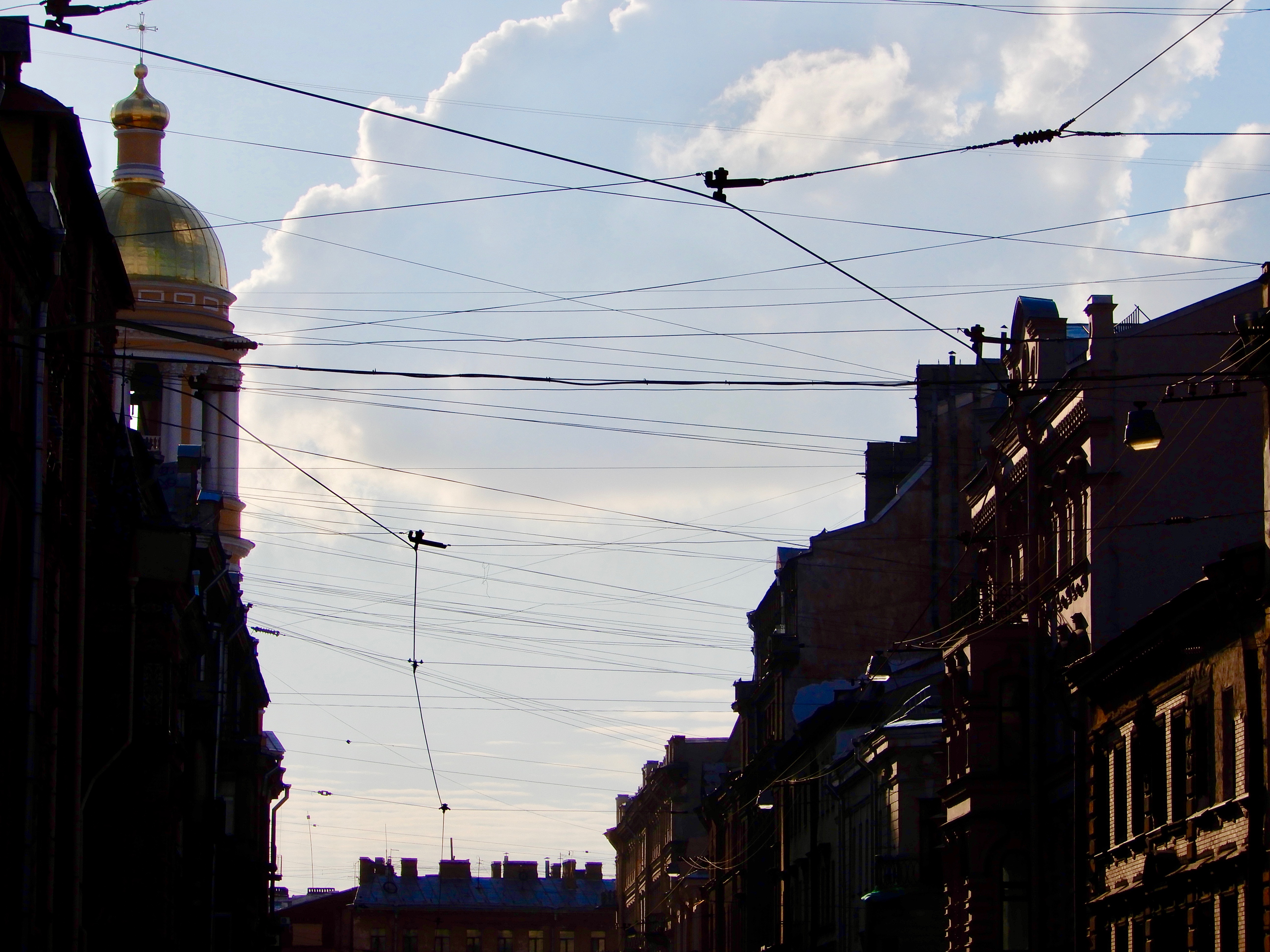 A view of Kolokolnaya Street, in downtown Petersburg, crisscrossed by telecom cables. Photo by the Russian Reader
A view of Kolokolnaya Street, in downtown Petersburg, crisscrossed by telecom cables. Photo by the Russian Reader





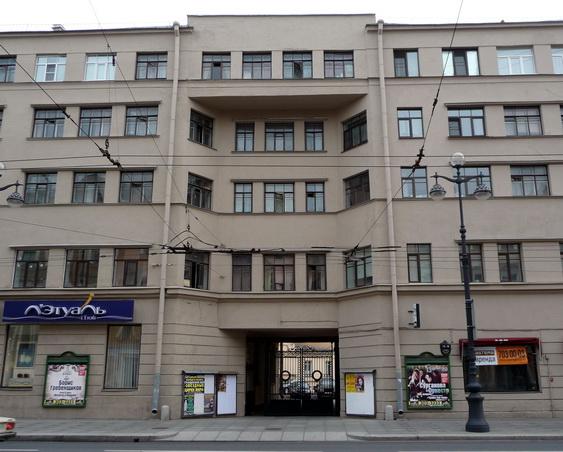
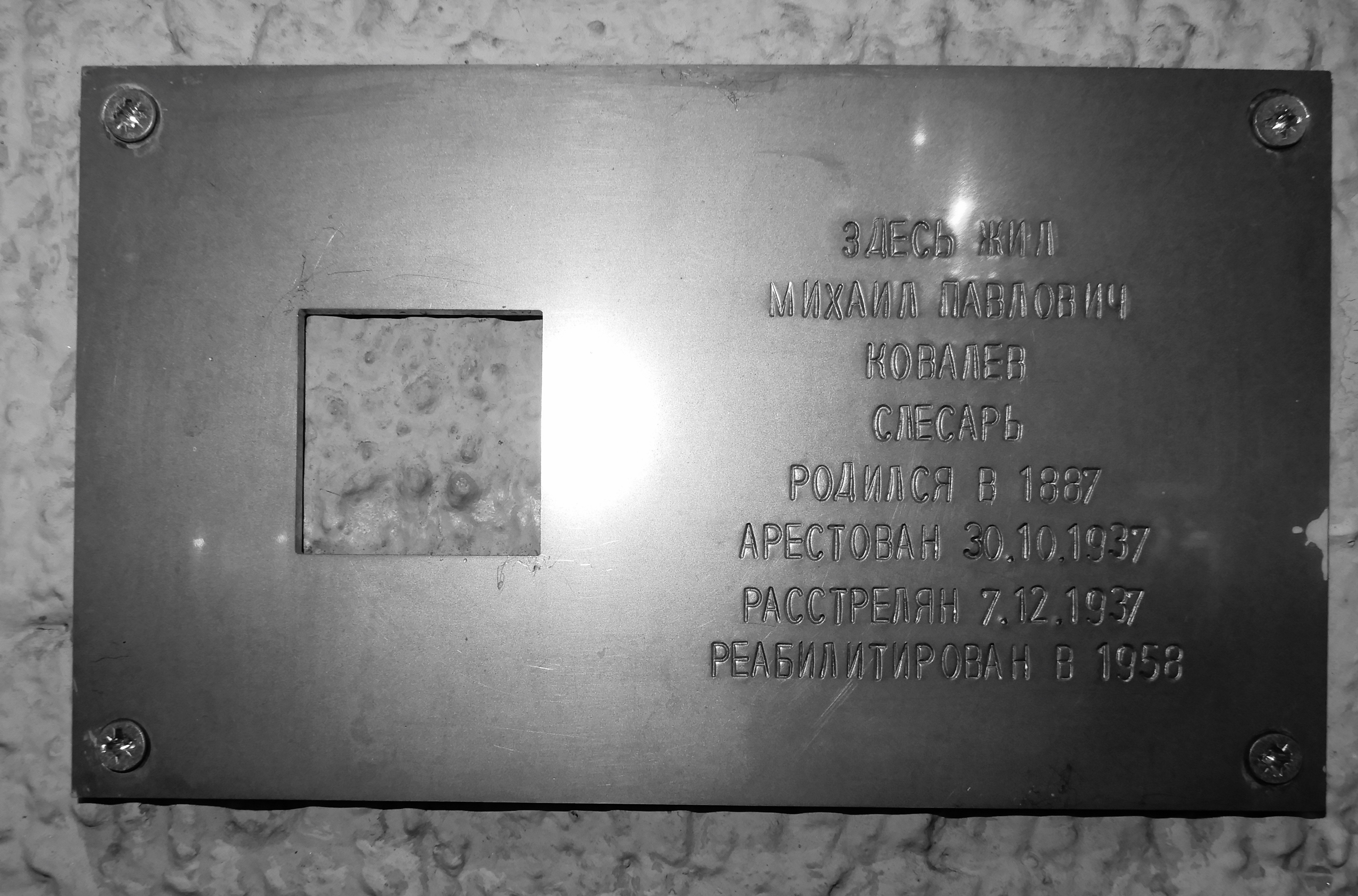 “Here lived Mikhail Pavlovich Kovalyov, welder. Born 1887. Arrested 30 October 1937. Shot 7 December 1937. Rehabilitated 1958.” Born in the village of Raivola, Finland, near the Russian/Soviet-Finnish border, Mr. Kovalyov worked at the Khalturin Factory and lived in flat no. 186.
“Here lived Mikhail Pavlovich Kovalyov, welder. Born 1887. Arrested 30 October 1937. Shot 7 December 1937. Rehabilitated 1958.” Born in the village of Raivola, Finland, near the Russian/Soviet-Finnish border, Mr. Kovalyov worked at the Khalturin Factory and lived in flat no. 186.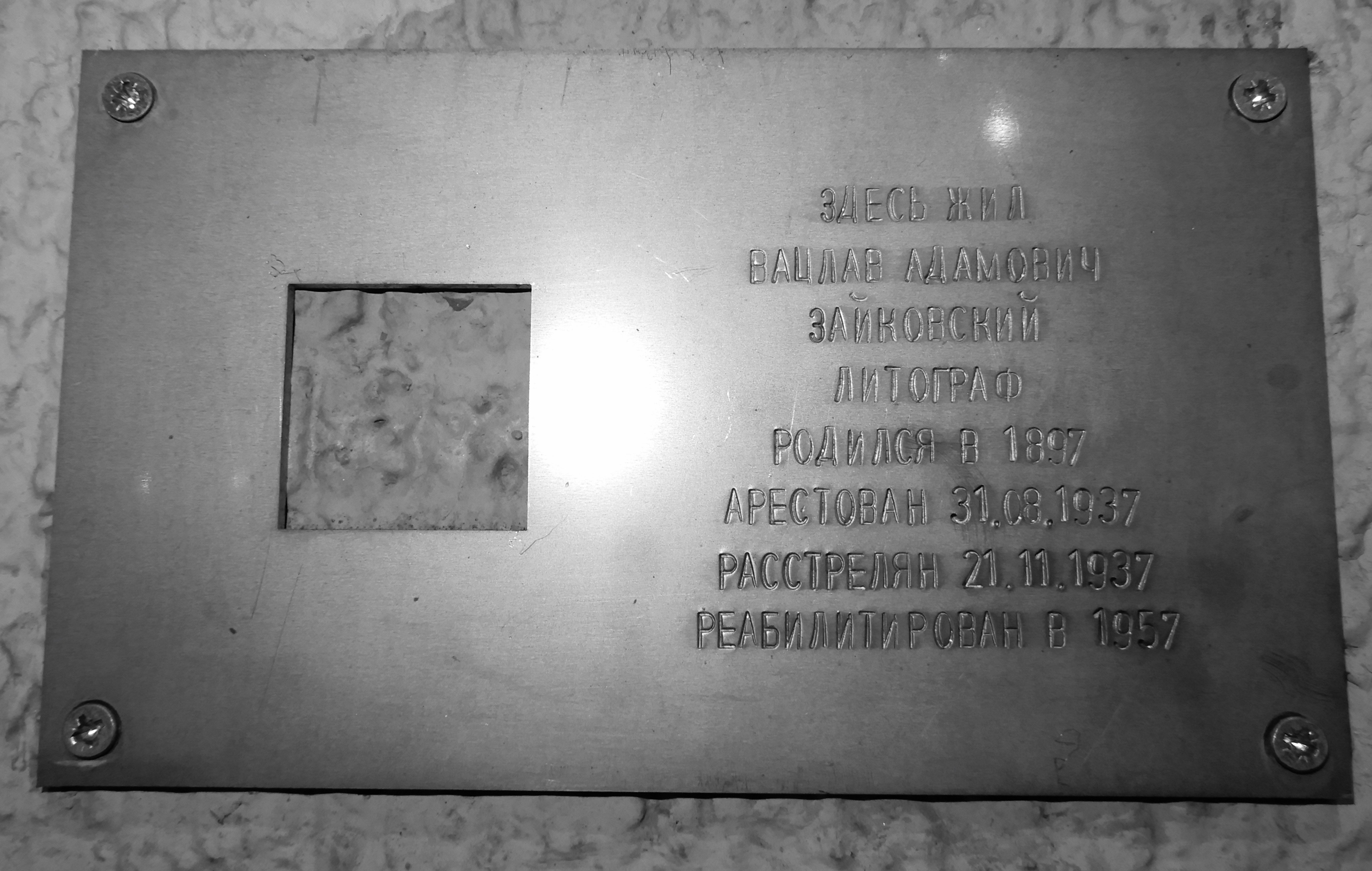 “Here lived Vaclav Adamovich Zaikovsky, litographer. Born 1897. Arrested 31 August 1937. Shot 21 November 1937. Rehabilitated 1957.” Born in the Vilna Governorate of the Russian Empire, Mr. Zaikovsky was a member of the All-Union Communist Party (Bolsheviks) from 1917 to 1937, and director of the First Art Lithography Works. He lived in flat no. 163.
“Here lived Vaclav Adamovich Zaikovsky, litographer. Born 1897. Arrested 31 August 1937. Shot 21 November 1937. Rehabilitated 1957.” Born in the Vilna Governorate of the Russian Empire, Mr. Zaikovsky was a member of the All-Union Communist Party (Bolsheviks) from 1917 to 1937, and director of the First Art Lithography Works. He lived in flat no. 163.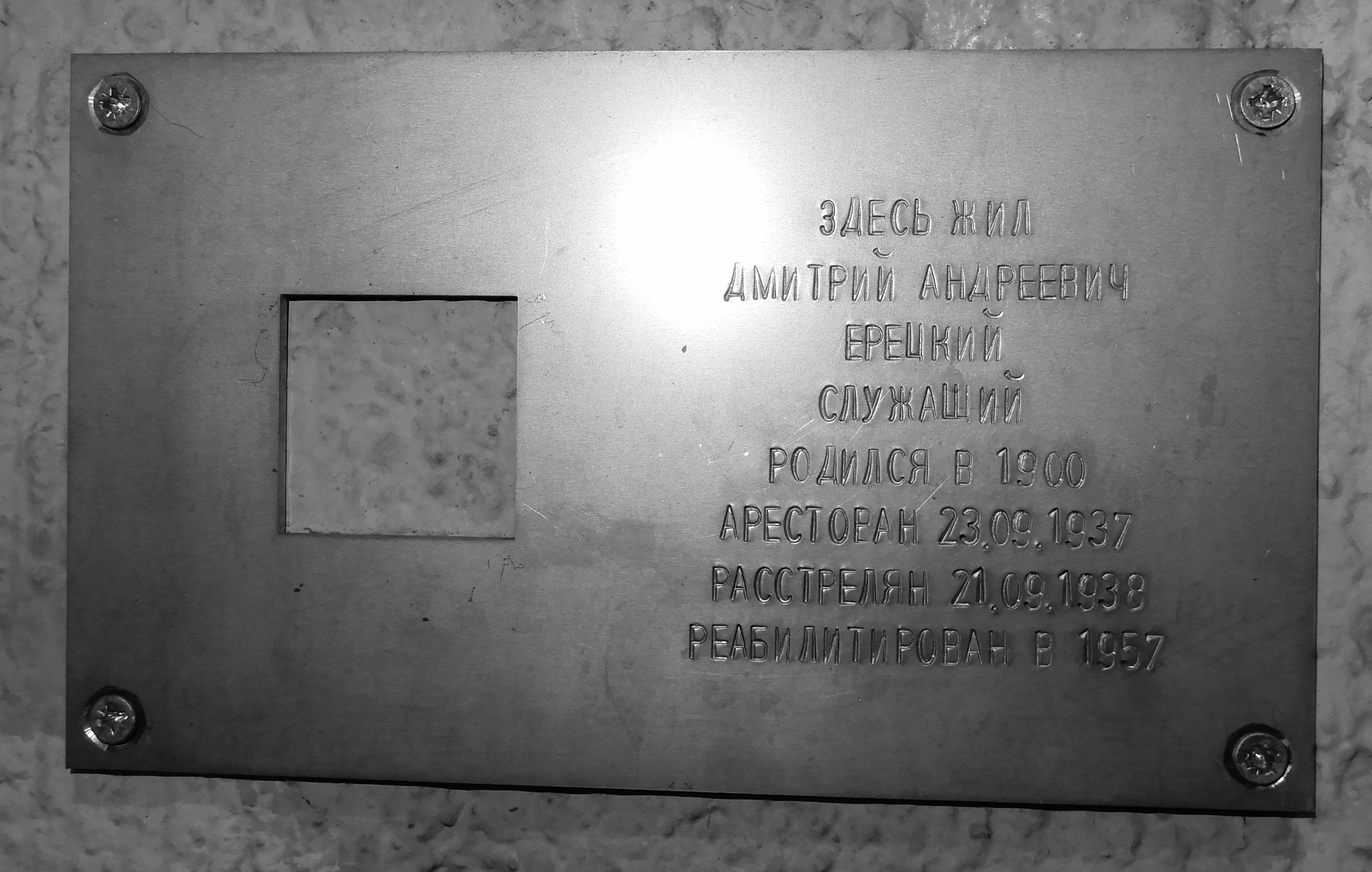 “Here lived Dmitry Andreyevich Yeretsky, civil servant. Born 1900. Arrested 23 September 1937. Shot 21 September 1938. Rehabilitated 1957.” Mr. Yeretsky was born in Beredichev, Belarus. He was director of the State Institute for the Design of Wood Chemical Industry Enterprises (Giproleskhim) and lived in flat no. 164.
“Here lived Dmitry Andreyevich Yeretsky, civil servant. Born 1900. Arrested 23 September 1937. Shot 21 September 1938. Rehabilitated 1957.” Mr. Yeretsky was born in Beredichev, Belarus. He was director of the State Institute for the Design of Wood Chemical Industry Enterprises (Giproleskhim) and lived in flat no. 164.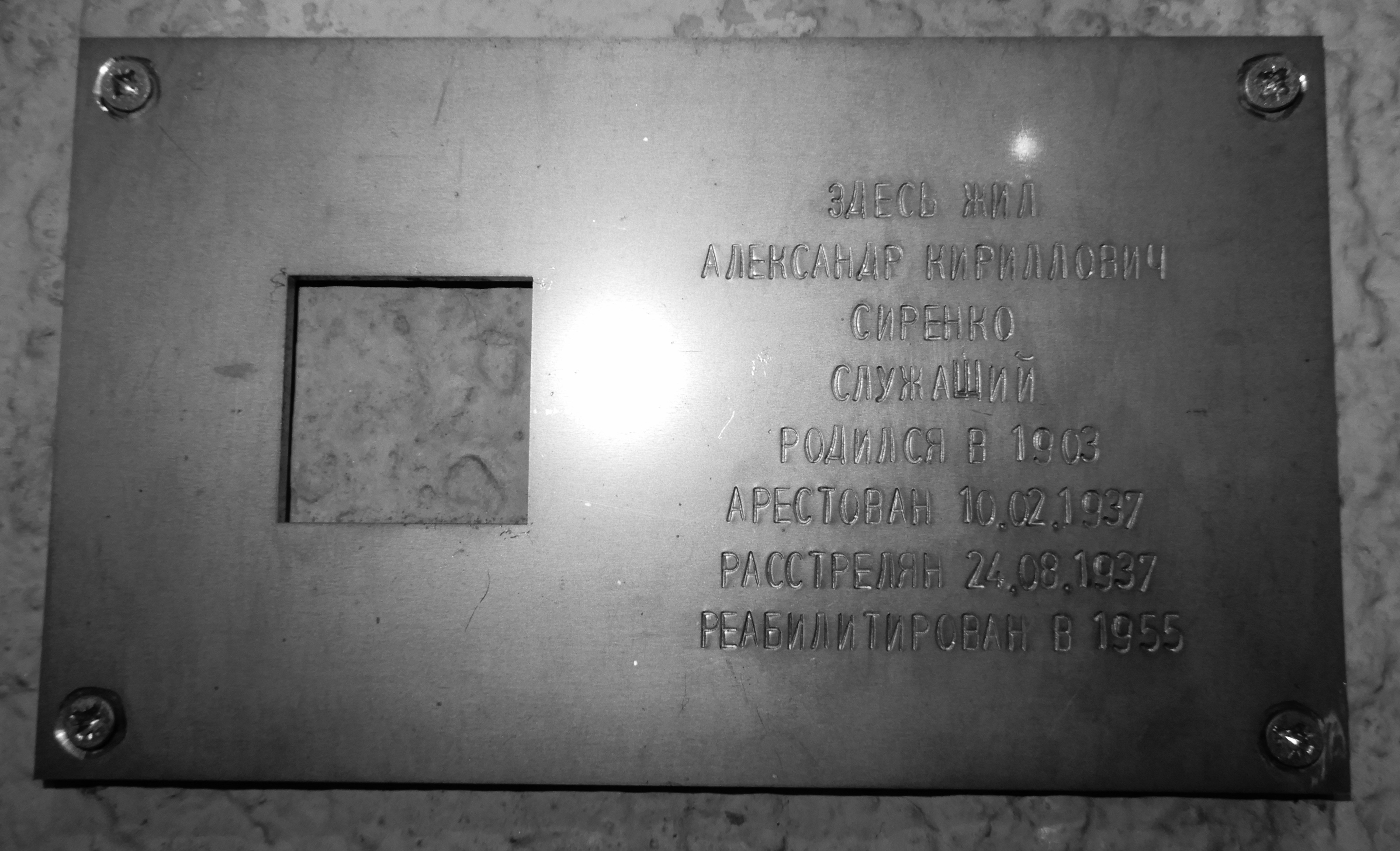 “Here lived Alexander Kirillovich Sirenko, civil servant. Born 1903. Arrested 10 February 1937. Shot 24 August 1937. Rehabilitated 1955.” Born in Ukraine’s Donetsk Region, Mr. Sirenko was director of the Nevsky Chemical Plant and lived in flat no. 146. He was a member of the All-Union Communist Party (Bolsheviks) from 1924 to 1937.
“Here lived Alexander Kirillovich Sirenko, civil servant. Born 1903. Arrested 10 February 1937. Shot 24 August 1937. Rehabilitated 1955.” Born in Ukraine’s Donetsk Region, Mr. Sirenko was director of the Nevsky Chemical Plant and lived in flat no. 146. He was a member of the All-Union Communist Party (Bolsheviks) from 1924 to 1937.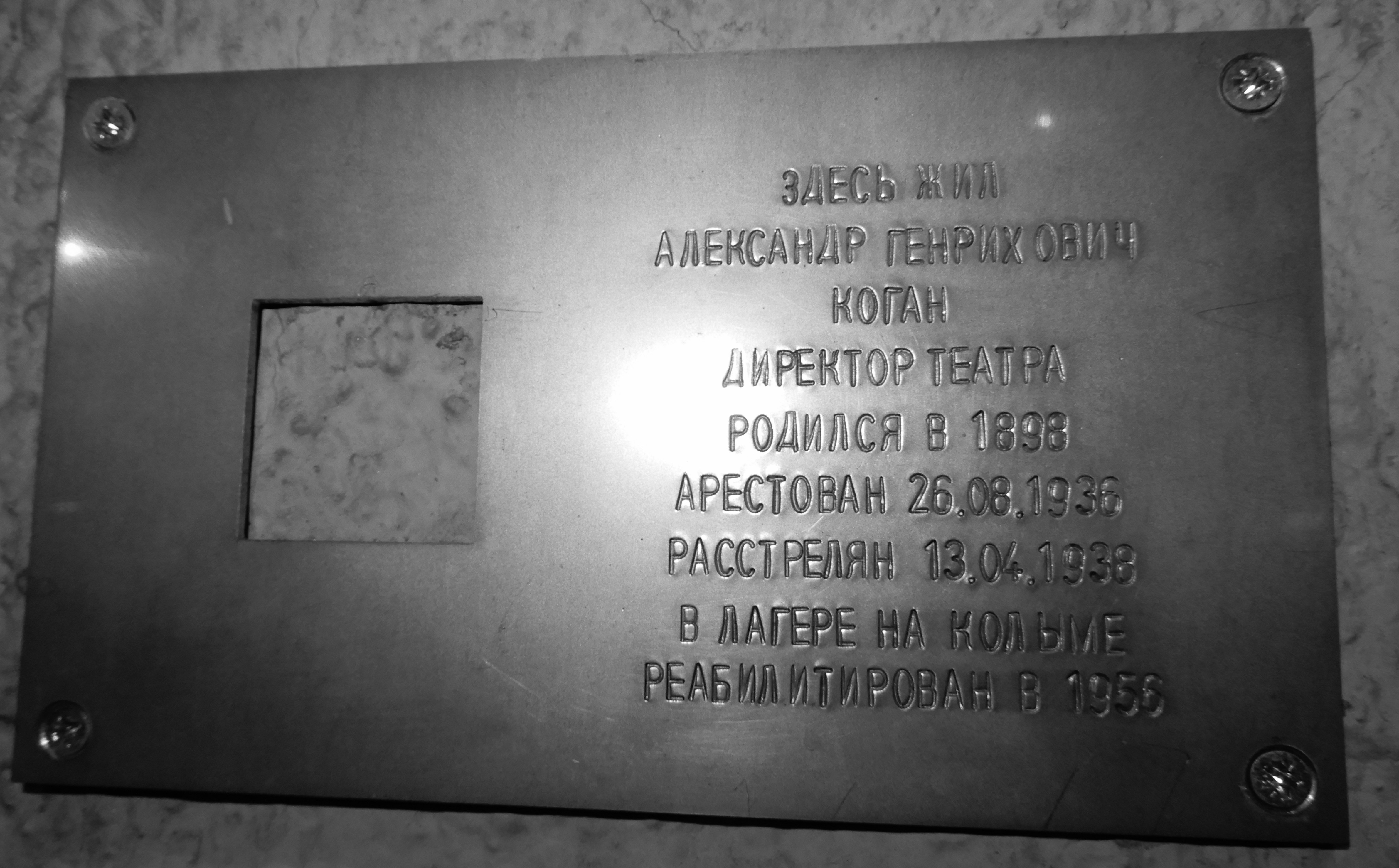 “Here lived Alexander Genrikhovich Kogan, theater manager. Born 1898. Arrested 26 August 1946. Shot 13 April 1938 in a work camp in Kolyma. Rehabilitated 1956.” A Jew from Nikolayev, Ukraine, Mr. Kogan was accused by the NKVD of involvement in a wholly fictitious “counterrevolutionary insurgent organization.” The number of the flat where he lived is not listed on the Last Address map or in Memorial’s Leningrad Martyrology database.
“Here lived Alexander Genrikhovich Kogan, theater manager. Born 1898. Arrested 26 August 1946. Shot 13 April 1938 in a work camp in Kolyma. Rehabilitated 1956.” A Jew from Nikolayev, Ukraine, Mr. Kogan was accused by the NKVD of involvement in a wholly fictitious “counterrevolutionary insurgent organization.” The number of the flat where he lived is not listed on the Last Address map or in Memorial’s Leningrad Martyrology database.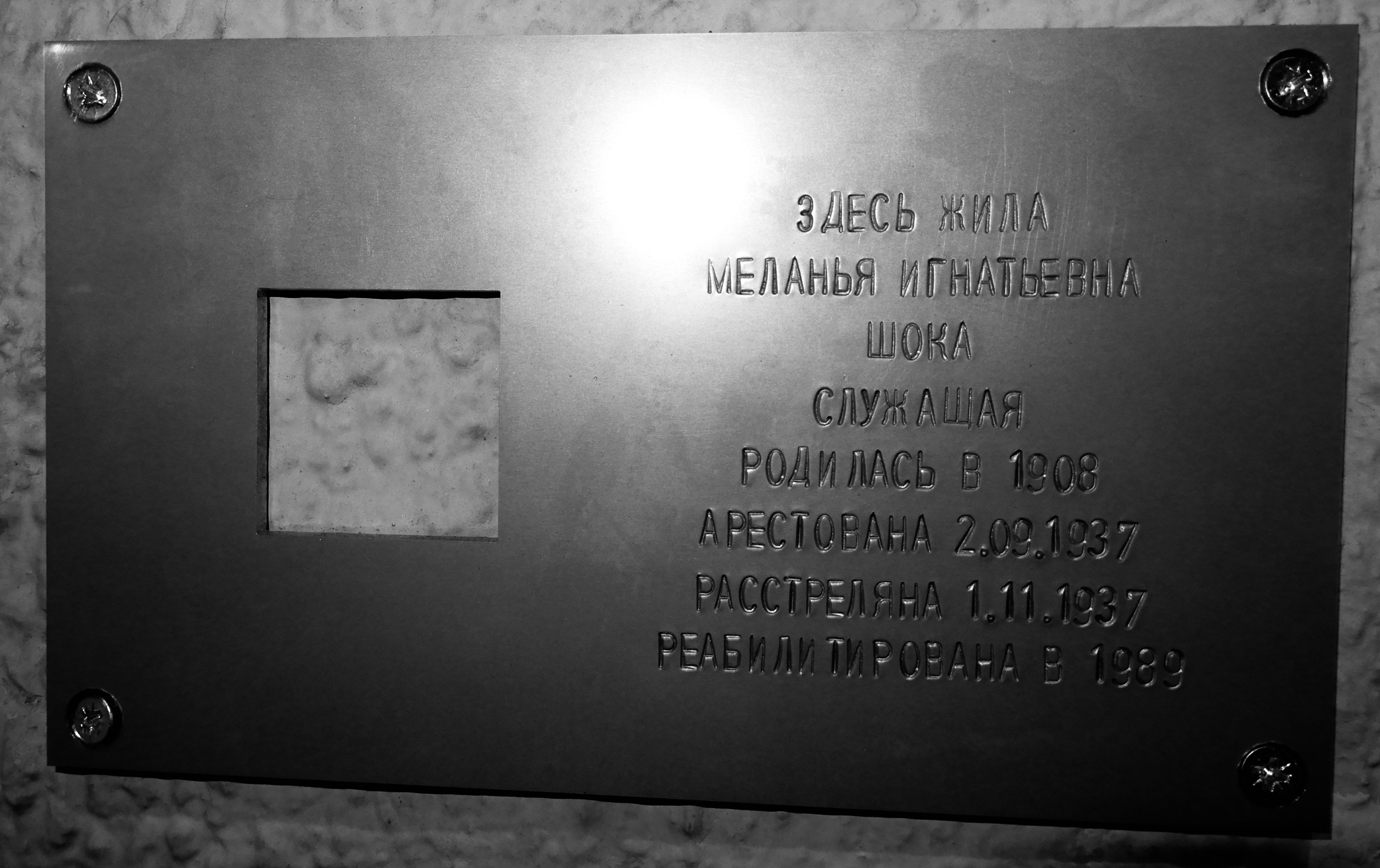 “Here lived Melania Ignatyevna Shoka, civil servant. Born 1908. Arrested 2 September 1937. Shot 1 November 1937. Rehabilitated 1989.” An ethnic Pole born in the Grodno Governorate of the Russian Empire, Ms. Shoka was a personnel instructor in the non-steamboat fleet of the Northwest River Shipping Company. She lived in flat no. 70 and was not a member of the Communist Party.
“Here lived Melania Ignatyevna Shoka, civil servant. Born 1908. Arrested 2 September 1937. Shot 1 November 1937. Rehabilitated 1989.” An ethnic Pole born in the Grodno Governorate of the Russian Empire, Ms. Shoka was a personnel instructor in the non-steamboat fleet of the Northwest River Shipping Company. She lived in flat no. 70 and was not a member of the Communist Party.



